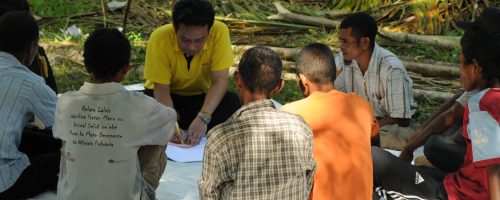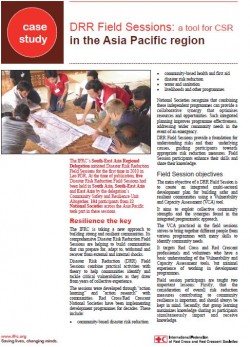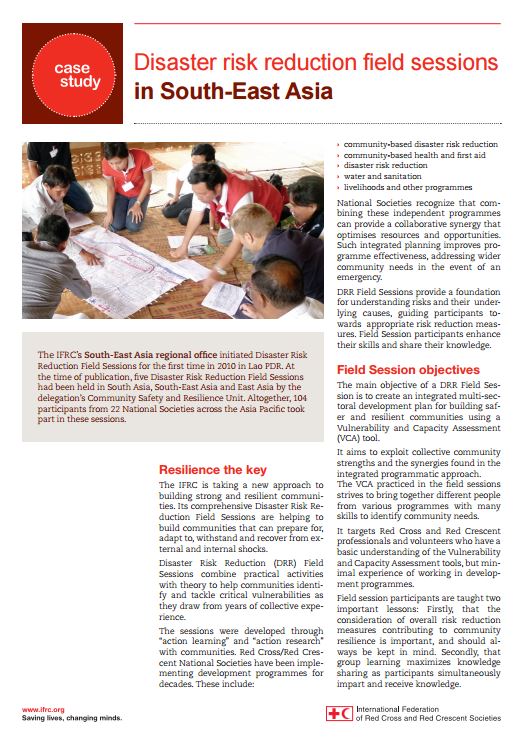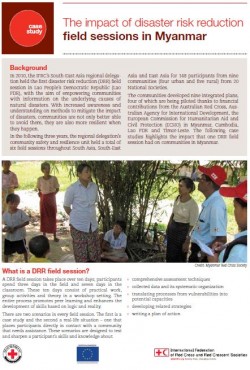The regional perspective
The IFRC is taking a new approach to building strong and resilient communities. Its comprehensive Disaster Risk Reduction Field Sessions are helping to build communities that can prepare for, adapt to, withstand and recover from external and internal shocks. Disaster Risk Reduction (DRR) Field Sessions combine practical activities with theory to help communities identify and tackle critical vulnerabilities as they draw from years of collective experience. The sessions were developed through “action learning” and “action research” with communities.
DRR Field Sessions provide a foundation for understanding risks and their underlying causes, guiding participants towards appropriate risk reduction measures.
The main objective of a DRR Field Session is to create an integrated multi-sectoral development plan for building safer and resilient communities using a Vulnerability and Capacity Assessment (VCA) tool. It aims to exploit collective community strengths and the synergies found in the integrated programmatic approach.
In 2010, the IFRC initiated the Disaster Risk Reduction Field Sessions in Laos. Since then, further sessions have been held in Timor Leste, Sri Lanka, Thailand and China. So far more than 100 practitioners from 22 national Societies across Asia and the Pacific have attended the Disaster Risk Reduction Field Sessions.
e-mail: Disaster Risk Management Delegate, Hung Ha Nguyen, at hungha.nguyen@ifrc.org
Case studies
More resources
- Process Report on Disaster Risk Reduction Field Session | Apr 2012 | Chiang Mai, Thailand
- Process Report on Disaster Risk Reduction Field Session | Mar 2012| Colombo, Sri Lanka
- Process Report on Disaster Risk Reduction Field Session | April 2011 | Dili, Timor-Leste
- Facilitator Guide for DRR Field Session
- The Nano Community case, the case story used in one of the Field Sessions
- Vulnerability Capacity Assessment Report for the Dhampura Village in Sri Lanka
- Field Session Exercises using Assessments for Wadulla Watte in Sri Lanka
- Consolidation of Field Sessions — Project Formulation | The Cold — 24 April – 3 May (in Thai), Chiang Mai, Thailand (In Thai)
![]()





